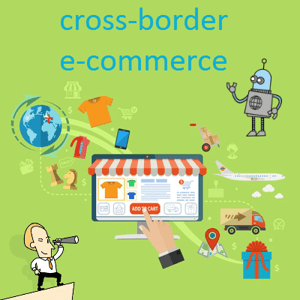Online giant Google and a leader in seamless payment Ingenico teamed up to facilitate cross-border ecommerce. The project Export Accelerator aims to help online merchants boost their business abroad by reducing cross-border obstacles.
Export Accelerator will pilot in Belgium and will address a key challenge businesses face when expanding abroad. The solution should provide companies with an opportunity to explore and identify new growth opportunities, penetrate international markets and increase online revenue.
While Google will provide analysis and expertise in identification of international business opportunities, Ingenico will be responsible for providing a safe, seamless cross-border payment solution respective of preferred local payment methods.
According to Forrester, the European cross-border online sales are on the rise; they are expected to grow by a compound annual growth rate (CAGR) of 11% over the next five years and are forecasted to reach €40 billion by 2018. Recently, cross-border sales accounted for 16% of all Western European online retail sales. While the Export Accelerator project addresses the questions of where to sell abroad and how to process payments, language still remains the number one barrier why consumers and businesses are reluctant to buy online more. Product/service information needs to be available in local languages that a company is targeting. Another EU cross-border barrier are longer delivery times. Consumer rights, which used to be a barrier, are now becoming an initiative that will drive EU cross-border e-commerce forward (read more about the standing and anticipated EU-wide e-commerce policies in our blog). For example, the EU already has a union-wide policy on a 14 days “cooling off” period, during which a consumer can return goods for any reason. Cross-border trade is also supported by an introduction of SEPA (Single Euro Payments Area) harmonization of online payments. This means that payments within the EU are faster, safer and cheaper. As of August 2014, 99.4% of credit transfers, 99.9% of direct debit and 79.2% of card payments have been migrated to SEPA in the euro area. Following November 2016, payment service providers in non-euro countries will only be able to collect euro-denominated payments using SEPA procedures.
Read more about these and other topics in our ebook e-commerce in Europe!
Sources:
Ingenico press release
Forrester forecast on European cross-border e-commerce
SEPA

